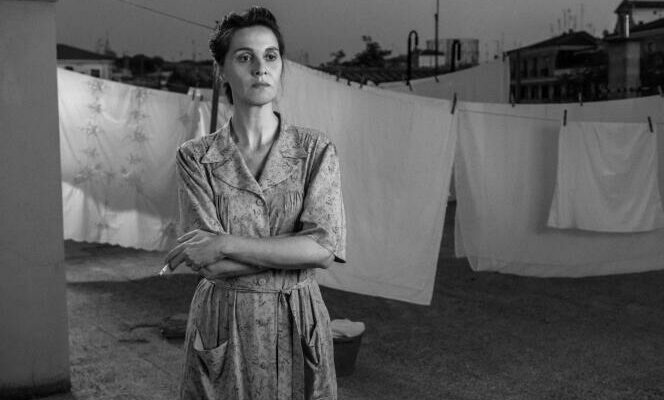This is what the Italians call a case, a social phenomenon. With nearly 5.5 million entries since the end of October 2023, There is still tomorrow breaks record after record, while placing domestic violence at the heart of the transalpine public debate. This is the first production of Paola Cortellesi, who is also the main actress and co-writer. Passing through Paris to accompany the French release of the film, this 50-year-old Romaine, who cut her teeth in popular comedy, tells the World the genesis of this impressive success.
How did “There’s Still Tomorrow” come about?
Three years ago, I read a book to my daughter about the history of women’s rights. She was 8 and a half years old, her disbelief moved me. I wanted to make a film on this very contemporary theme, anchoring it in a period where domestic violence was seen as normal: no one cried scandal then. It seemed wise to me to place it in 1946, when women obtained the right to vote in Italy. Today we take it for granted, but at the time it was a fundamental step forward.
Does the film draw on your family history?
It’s a fiction. But it is nourished by the memories of my mother and my grandmother. They did not suffer violence, but, in the working-class neighborhood where they lived, in Rome, they heard about it in a trivial way, without the tragic dimension that such stories deserve. This theme has always been close to my heart, I talked about it in my shows well before #metoo which, in Italy, was limited to a debate on sexual assault in the professional context. Our country has a feminicide every seventy-two hours, on average: we can’t take it anymore! A minority of men still don’t accept being told no. This archaic mentality unfortunately crosses social classes and generations.
Until now, you have distinguished yourself in comedy. Did dealing with such a serious topic scare you?
No, it seemed natural to me. As an actress or screenwriter, my great successes were part of the tradition of Italian comedy, these films by Risi, Monicelli or Scola, which confronted tough subjects with humor, or so-called “pink” neorealism, where the drama is tinged with lightness. The cinema in which I believe combines registers. This is still the case here. I wanted the tension, at times, to relax. It seemed important to me to make fun of the protagonist’s husband and father-in-law. Villains are often fascinating in cinema; They, when they do not use their terrible violence, are only stupid, bad, ridiculous. Hats off to my actors: alternating drama and satire, as they did, is never easy.
You have 55.03% of this article left to read. The rest is reserved for subscribers.
